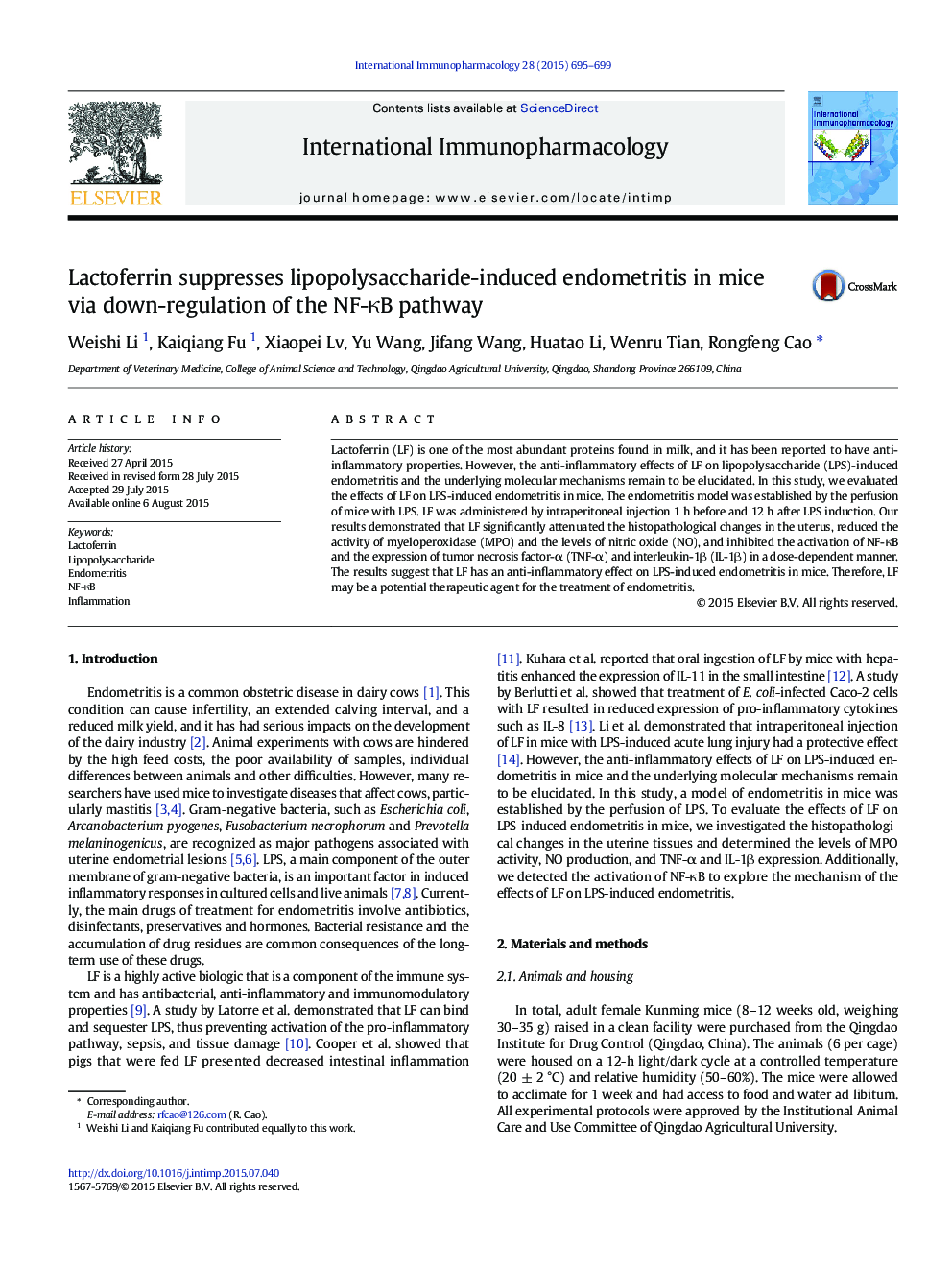| Article ID | Journal | Published Year | Pages | File Type |
|---|---|---|---|---|
| 2540508 | International Immunopharmacology | 2015 | 5 Pages |
•A model of endometritis in mice was established by the perfusion of LPS.•Lactoferrin has an anti-inflammatory effect on endometritis.•Lactoferrin ability to inhibit the NF-κB signaling pathway•Lactoferrin can inhibition the expression of pro-inflammatory cytokines.
Lactoferrin (LF) is one of the most abundant proteins found in milk, and it has been reported to have anti-inflammatory properties. However, the anti-inflammatory effects of LF on lipopolysaccharide (LPS)-induced endometritis and the underlying molecular mechanisms remain to be elucidated. In this study, we evaluated the effects of LF on LPS-induced endometritis in mice. The endometritis model was established by the perfusion of mice with LPS. LF was administered by intraperitoneal injection 1 h before and 12 h after LPS induction. Our results demonstrated that LF significantly attenuated the histopathological changes in the uterus, reduced the activity of myeloperoxidase (MPO) and the levels of nitric oxide (NO), and inhibited the activation of NF-κB and the expression of tumor necrosis factor-α (TNF-α) and interleukin-1β (IL-1β) in a dose-dependent manner. The results suggest that LF has an anti-inflammatory effect on LPS-induced endometritis in mice. Therefore, LF may be a potential therapeutic agent for the treatment of endometritis.
